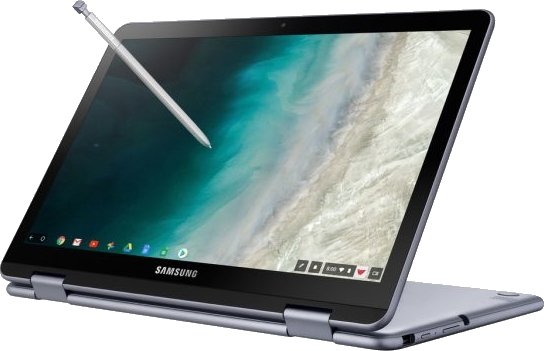Surface Pro X vs. iPad Pro 12.9 vs. Chromebooks: A cost (and value) comparison
Compared to Apple's iPad Pro 12.9 and Chromebooks, the Surface Pro X is not nearly as overpriced as you may think.
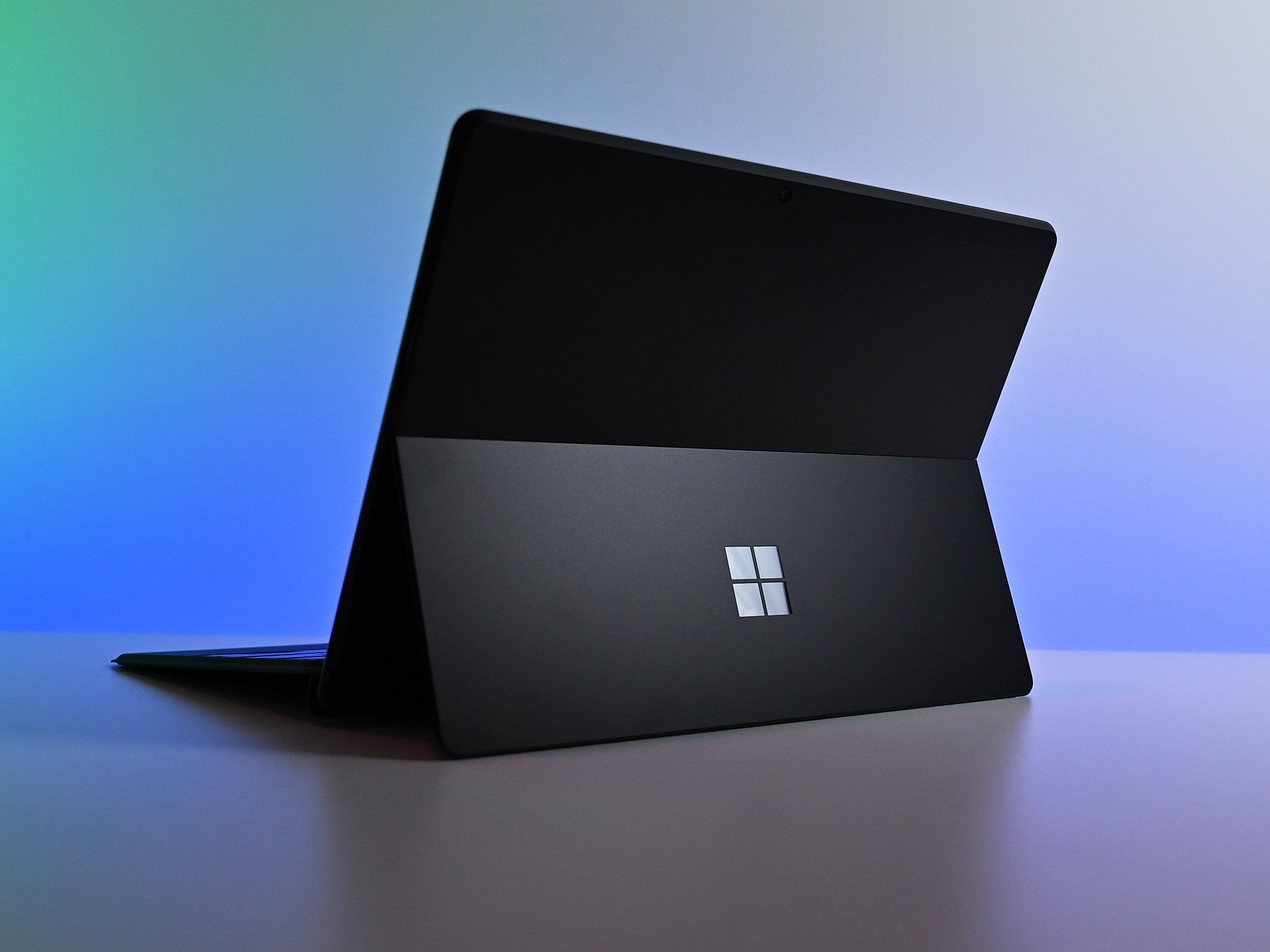
All the latest news, reviews, and guides for Windows and Xbox diehards.
You are now subscribed
Your newsletter sign-up was successful
A hot topic when talking about technology is always cost. It's a subjective discussion with no right answer. As I recently wrote, price in tech is also fleeting; a 4K TV cost $10,000 five years ago.
But there's something that keeps bugging me about the cost complaints regarding the Surface Pro X being too expensive. Here's why the critics are wrong.
Everything should be cheaper
Before I get to the crux of my argument, let me just say I get it. Every new gadget, technically speaking, is "too expensive" for someone. In our heads, we all have an arbitrary price point that we think makes sense. Some of that is pragmatic: how much we can afford? A lot of it is just opinion: what we think said object is worth.
Some people drop $300 on sneakers and don't bat an eye, while others grab whatever is on sale for $45 and are just as happy. This question of value exists everywhere. I guarantee someone thinks you paid too much for a piece of tech you cherish.
From that perspective, when people claim the Surface Pro X should cost $500, I understand. I mean, hell, why not price it at $200 and ship it with free games? Maybe Microsoft should take a loss on the hardware and just pay you to use it?
I'm being facetious here, but my point is most people won't agree on what is a fair price — not without debate, caveats, and exceptions. With that said…
Surface Pro X vs. iPad Pro 12.9 with LTE
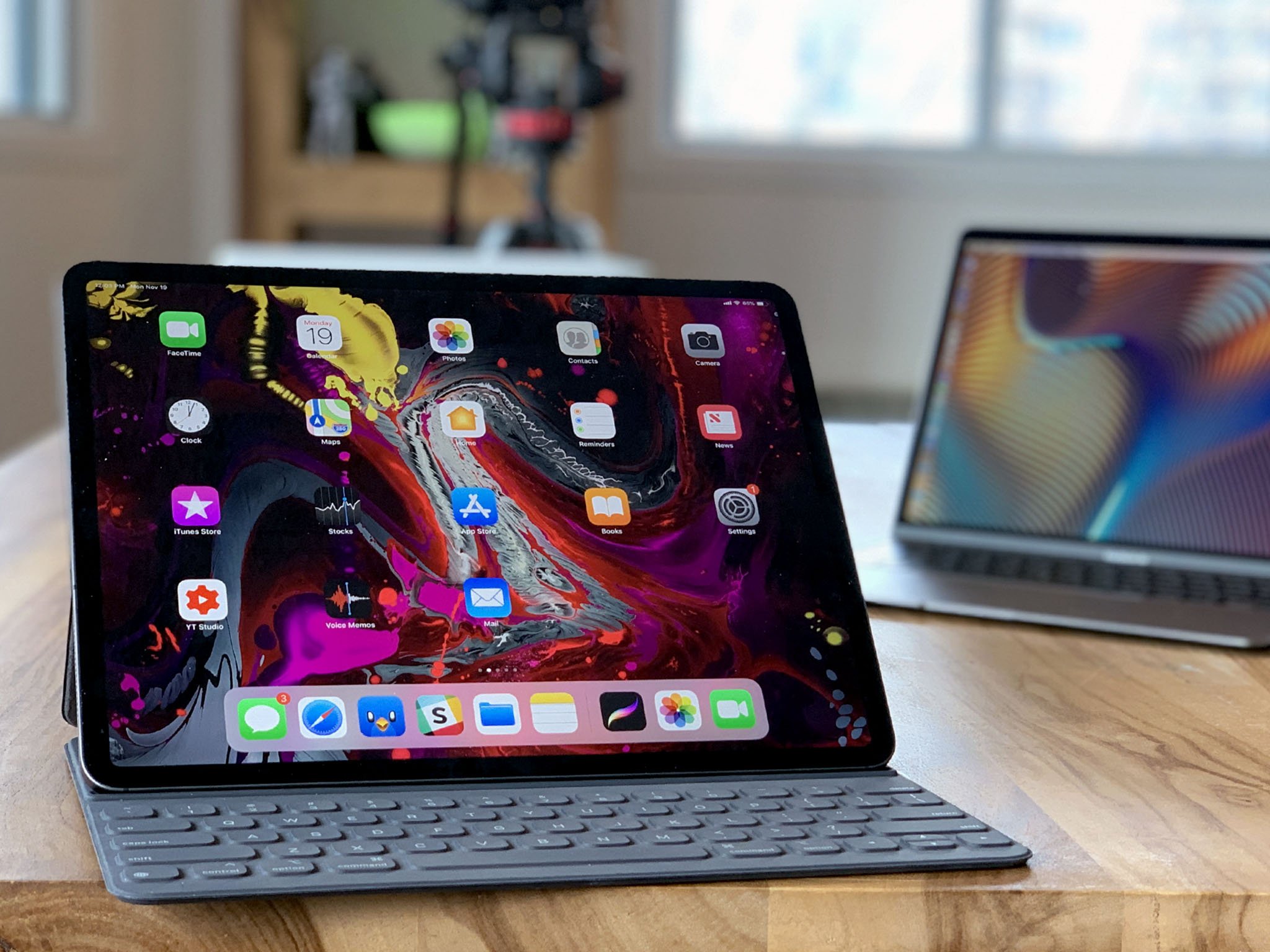
The Surface Pro X is often compared to two other device categories: Apple's iPad Pro and Google Chromebooks.
All the latest news, reviews, and guides for Windows and Xbox diehards.
These are all very different devices (with different prices), but there is some overlap.
Let's start with Surface Pro X compared to an iPad Pro 12.9, since those are very similar in size, price, and target audience. For simplicity, I'm comparing the mid-range configuration for both devices with 256GB of storage and LTE.
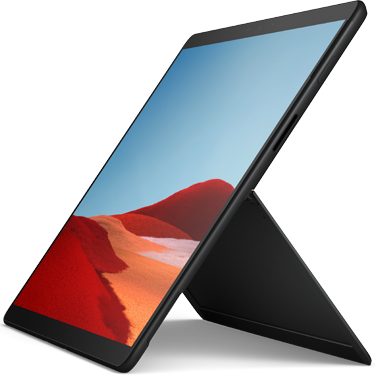
ARM'ed Surface
For some, the biggest drawback of the Surface Pro X is the inability to run x86-64-bit apps, which include high-end CAD apps, photo and video editing (Adobe), and some modern games. Running full Windows 10 makes the Surface Pro X more of an authentic PC experience, which is both a pro and a con for some buyers.
Pros
- Runs full Windows 10 Home (or Pro)
- Upgradable SSD
- Gorgeous design
- Two USB-C ports
- Can use a mouse
Cons
- Lacks x86-64-bit software
- Performance is just "good enough"
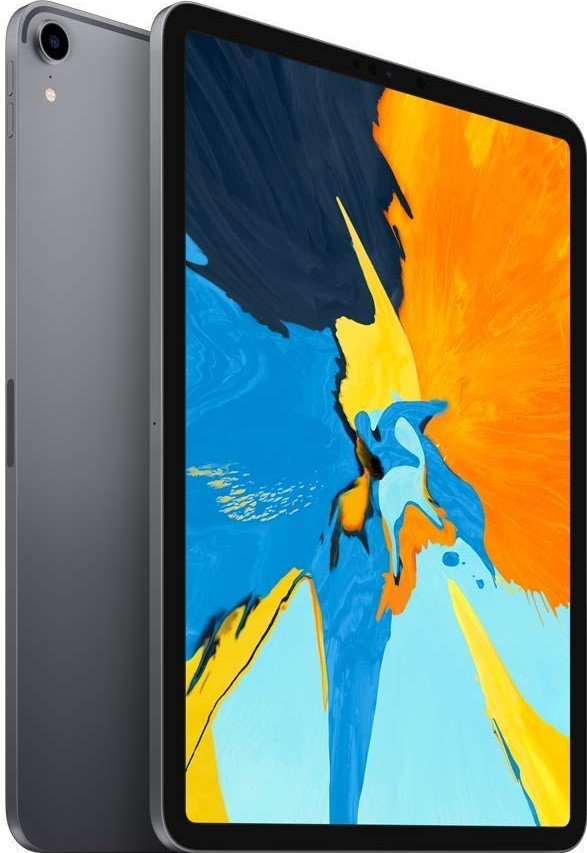
Brilliant tablet
Much debate has occurred over whether the iPad Pro 12.9 could be a proper laptop replacement. For some, it can work. But for many owners, the iPad Pro is a supplementary device that backs up a proper computer (PC or Mac).
Pros
- Stunning display
- Superb hardware
- USB-C port
- Optional keyboard and pen
- Amazing apps and ecosystem
Cons
- Runs mobile OS
- No proper mouse support
Looking at the specs, we can see these are similar machines in many ways, including storage, display, LTE, and what's included.
| Header Cell - Column 0 | Surface Pro X | iPad Pro 12.9 LTE |
|---|---|---|
| Display | 13.0-inch PixelSense (2880x1920) 267 PPI | 12.9-inch Liquid Retina (2732 x 2048) 264 PPI |
| Storage | 256GB | 256GB |
| Upgradable SSD | Yes | No |
| Storage expansion | No | No |
| Keyboard | Yes (optional) | Yes (optional) |
| Pen | Yes (optional) | Yes (optional) |
| LTE | Yes | Yes (optional) |
| Ports | Two Type-C | One Type-C |
| Security | Face recognition | Face recognition |
| Price | $1,299 | $1,299 |
| Keyboard and pen | From $270 | From $329 |
The Surface Pro X with 256GB of storage, 8GB of RAM, with Surface Slim Pen and keyboard comes to $1,569 (though you can also find it on sale right now). By comparison, the iPad Pro 12.9 with 256GB of storage, LTE, Apple Pencil, and Smart Keyboard Folio comes to $1,628. The savings favor Microsoft by $59. That's not a lot, but you could put that towards an Arc mouse or maybe a dinner out.
The Surface Pro X is slightly cheaper than a similarly configured iPad Pro 12.9 with LTE.
Are one or even both overpriced? Maybe. But the more significant point is, if anything, the Surface Pro X is slightly cheaper – when all else is equal – than a similarly configured iPad Pro 12.9.
When Surface Pro X is on sale (like it is now), it's $1,369 with the pen and keyboard. That's $259 cheaper than a similarly configured iPad Pro 12.9. And current-gen iPads rarely, if ever, go on sale.
If you want to go nuts and max out both devices, Surface Pro X (16GB, 512GB) with pen and keyboard is $2,069 ($1,869 on sale). The Apple iPad Pro 12.9 with LTE (1TB) is $2,028 with a keyboard and Pencil.
Going the other direction the Surface Pro X base mode (8GB, 128GB) starts at $999 (on sale for $899 right now) while the iPad Pro 12.9 (64GB) and without LTE also starts at $999. Even here, the Pro X gets you "free" LTE over the iPad Pro with double the storage. In a best case scenario, it's $100 cheaper than Apple's tablet.
I won't debate which tablet is better, because that's up to you. My only point is to illustrate the cost comparison between two similarly configured devices.
Surface Pro X vs. Chromebooks
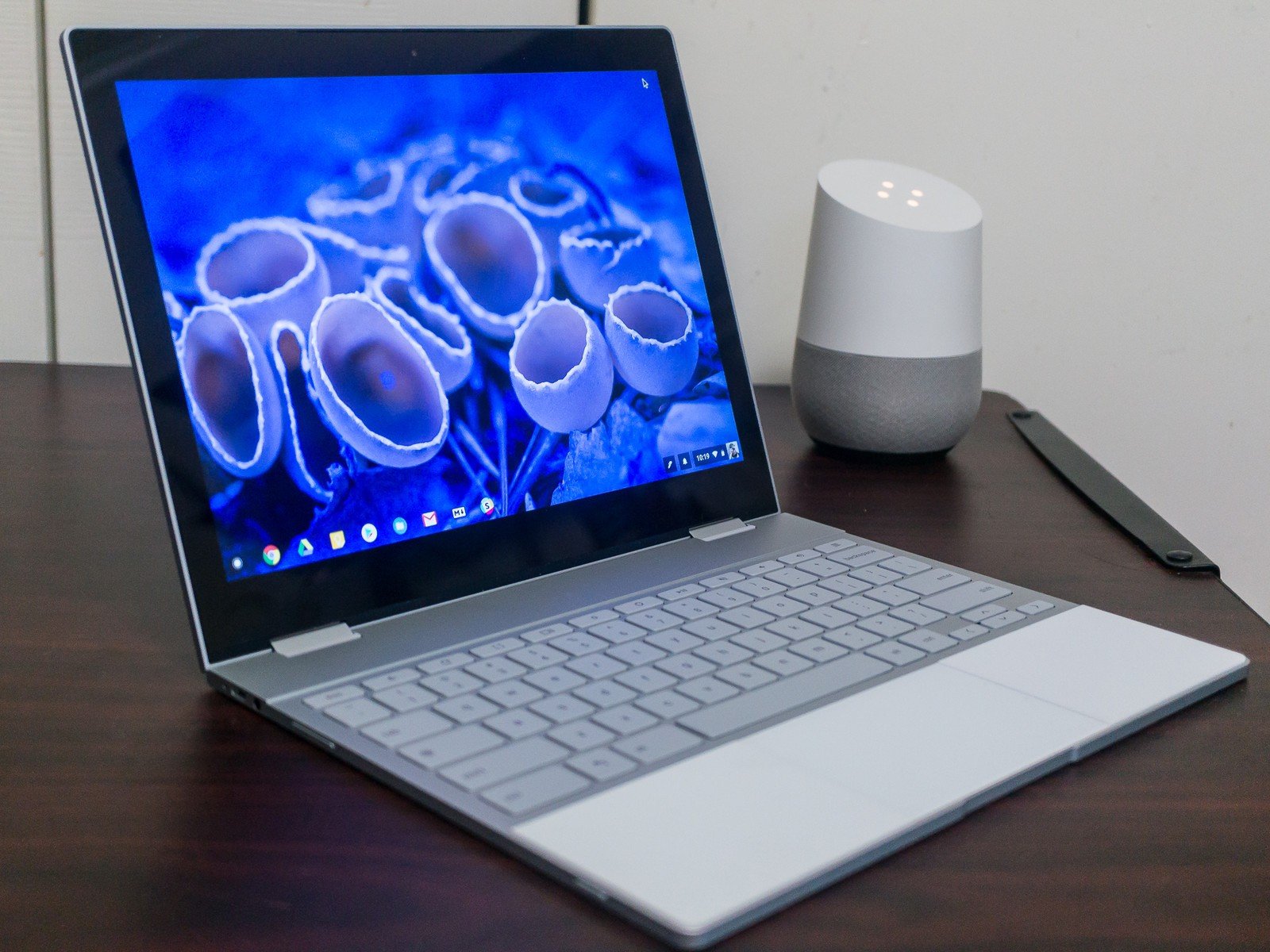
Things get more complicated if you compare the similarly-configured Surface Pro X to the entire Chromebook category. In general, Chromebooks are much cheaper.
Take, for instance, the latest Google Pixelbook Go, which starts at just $649. It lacks face recognition, LTE, upgradable storage, has only a full HD display, and doesn't support inking. But the quality is there.
However, if you go to the higher spec'd version of the Pixelbook Go, things start to skyrocket. Opting for the i7-8500Y model, you get a 4K display with 256GB of storage and 16GB of RAM (still no LTE) for $1,400. A Surface Pro X (16GB, 256GB) will set you back $1,499 ($1,299 on sale) without the pen and keyboard.
Mind you, that i7 is a seven-watt Y-series, dual-core chip, not a traditional U-series 15-watt quad-core found in most Ultrabook PCs. The Surface Pro X's Qualcomm SQ1 chip has eight cores, by comparison, though performance is more like a U-series Core i3 to i5.
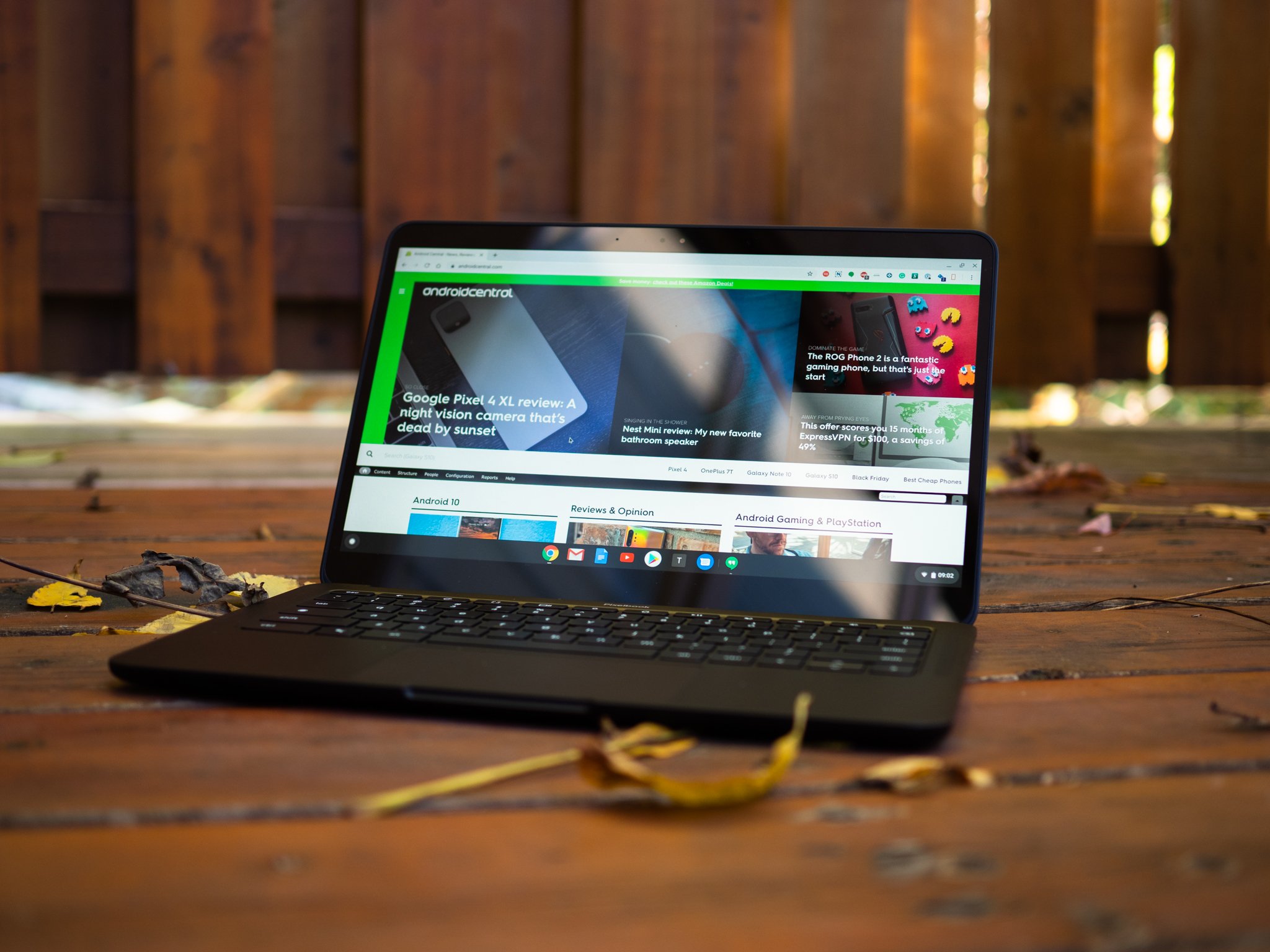
Google also still sells the highly-regarded Pixelbook — considered the crown jewel of Chromebooks — for $1,200 in 2020. That laptop came out in late 2017, features a 2016 Y-series processor, and it lacks LTE.
That said, you could go for the 2018 Samsung Chromebook Plus v2 (LTE) for $600. I have this laptop without LTE, and for the price, it's decent. For $600, here is what you get with Chromebook Plus v2 compared to the pricier Pro X:
| Header Cell - Column 0 | Surface Pro X | Samsung Chromebook Plus LTE |
|---|---|---|
| Display | 13.0-inch PixelSense (2880x1920) 267 PPI | 12.2-inch (1920x1080) 180 PPI |
| CPU | Qualcomm SQ1 (8-core) | Intel Celeron 3965Y (2-core) |
| Storage | 256GB PCIe NVMe SSD | 32GB eMMC |
| RAM | 8GB LPDDR4x | 4GB LPDDR3 |
| Storage expansion | No | Yes |
| Pen | Yes (optional) | Yes (included) |
| LTE | Yes | Yes (optional) |
| Ports | Two Type-C | Two Type-C |
| Security (bio) | Face recognition | None |
| Price | From $1,099 (sale price, regular is $1,299) | $600 |
Finally, you could go for the 2018 Acer Chromebook Spin 13 for $650 (it used to be $900). For that price, you get a real Core i5 U-series processor, 2K display, inking, 8GB of RAM, and 128GB of eMMC storage. There's no option for LTE, which is one of the main selling points of the Surface Pro X, but it's hard to deny that the price is more palatable.
Is Surface Pro X in a league of its own?
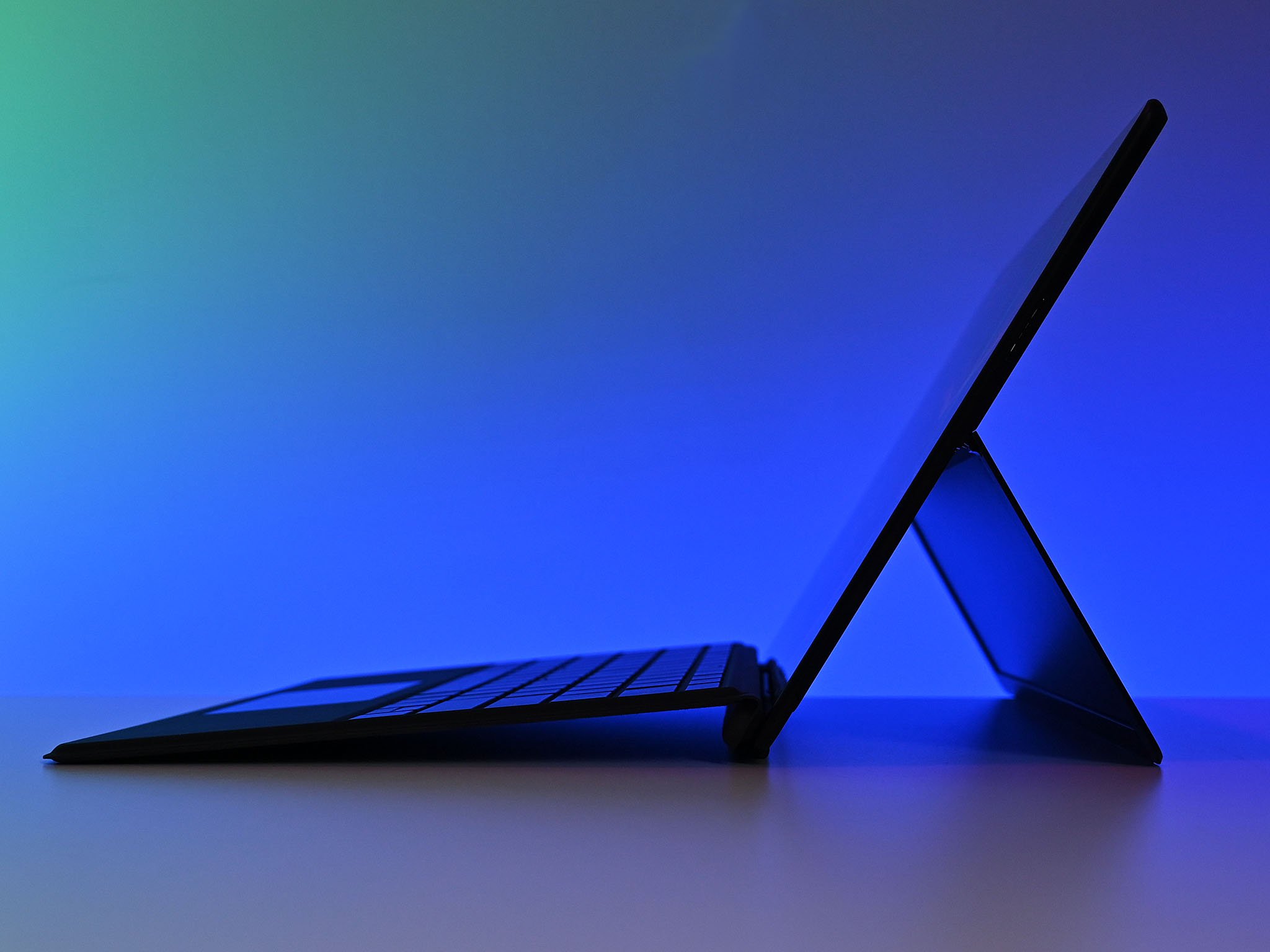
When compared to Apple's iPad Pro 12.9 with LTE, Surface Pro X costs less — sometimes by a little, sometimes by a few hundred dollars.
However, someone will inevitably raise their hand and say they don't need LTE, or that they could even get by with the smaller 11-inch model. Those are fair points; Apple certainly has more models available, letting buyers pick and choose exactly what they need. But the reason some people, including myself, prefer the Surface Pro X to other PCs is the always-connected 4G feature. Things like running full Windows apps (UWP, x86-32-bit) and that kickstand make it even better.
There are few computers that have everything Surface Pro X offers.
Turn to Chromebooks, and the price gap is massive, but there is often a good reason. You get old, quite anemic Intel CPUs, slow internal storage, and often don't even have the option for LTE.
There are only a few computers available today that feature everything the Surface Pro X offers. A high-quality display, 4G LTE, all-day battery life, excellent audio, inking, Windows Hello facial recognition, upgradable SSD, and that kickstand. And, yes, for many people, integration with the Microsoft ecosystem and running Windows 10 is a selling point. If I thought Chrome OS or iPadOS were better, I'd be using them.
Why Surface Pro X is my favorite laptop of 2019
Whether what Surface Pro X offers is crucial to you is a personal choice. I am not telling you that Surface Pro X is a good value. But at least when it comes to the sticker price, the cost is not excessive, at least compared to the rest of the market.
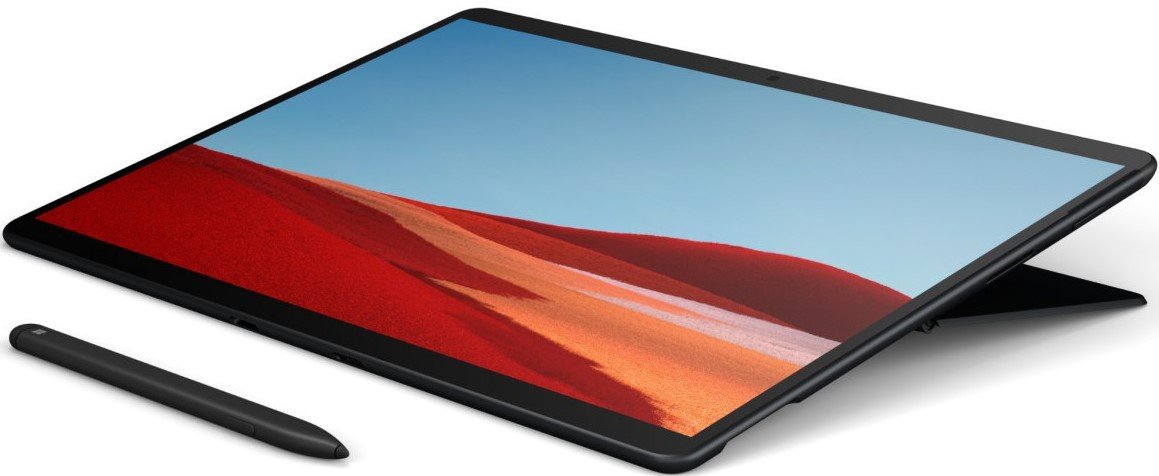
The thinnest and lightest Surface Pro available
Surface Pro X delivers the most exciting design for the Surface Pro yet. For people who need a light, thin, LTE-enabled productivity laptop, the Surface Pro X offers a unique set of features not found anywhere else.
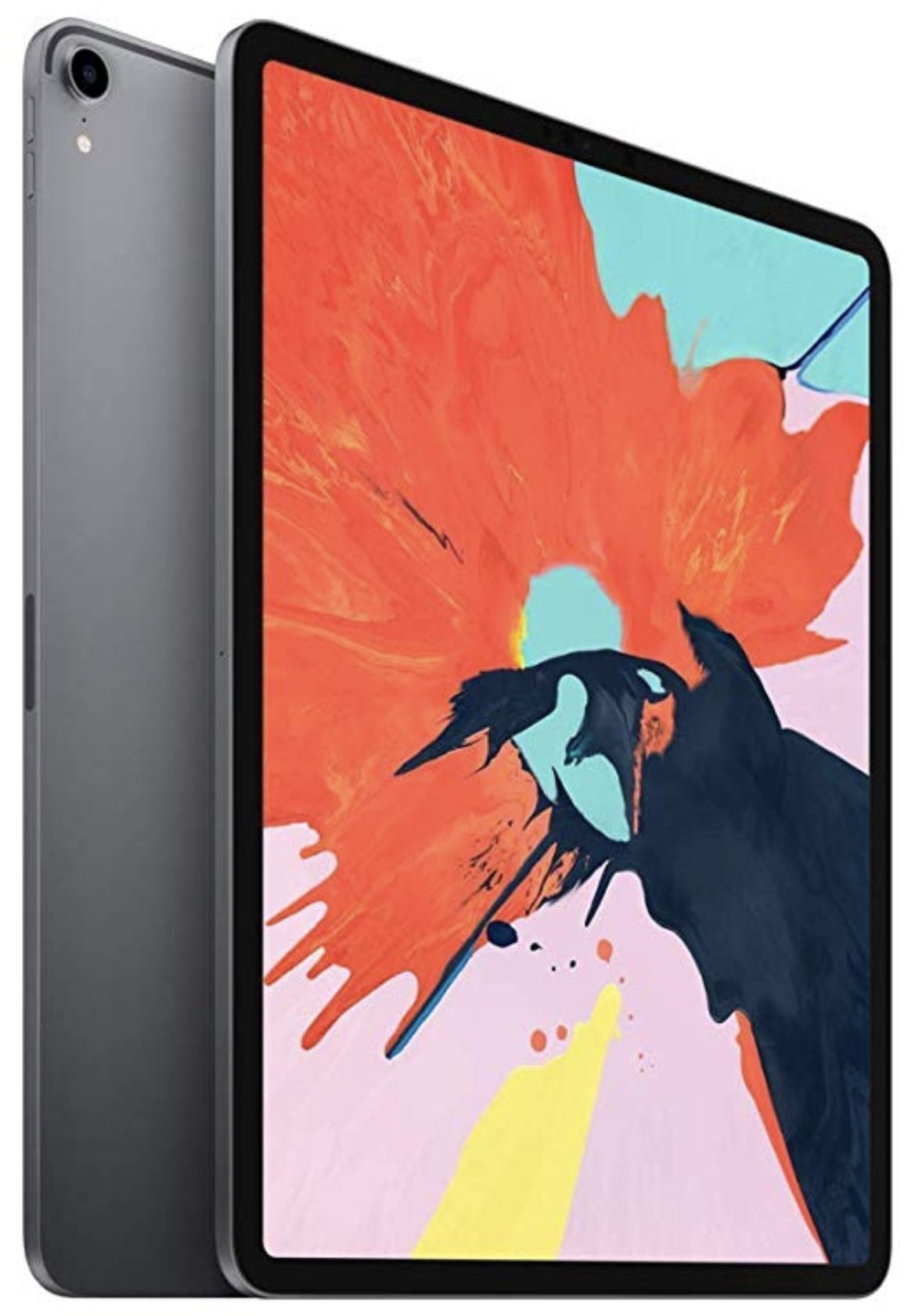
When you need the best Apple offers
The 12.9-inch iPad Pro is more like a computer replacement for those who want to do most of their work with iOS. It has more screen estate to work with than other iPads, making drawing, handwriting, and typing a breeze. However, the large size can be cumbersome to hold and it isn't as portable as the smaller version.

Daniel Rubino is the Editor-in-Chief of Windows Central. He is also the head reviewer, podcast co-host, and lead analyst. He has been covering Microsoft since 2007, when this site was called WMExperts (and later Windows Phone Central). His interests include Windows, laptops, next-gen computing, and wearable tech. He has reviewed laptops for over 10 years and is particularly fond of Qualcomm processors, new form factors, and thin-and-light PCs. Before all this tech stuff, he worked on a Ph.D. in linguistics studying brain and syntax, performed polysomnographs in NYC, and was a motion-picture operator for 17 years.
